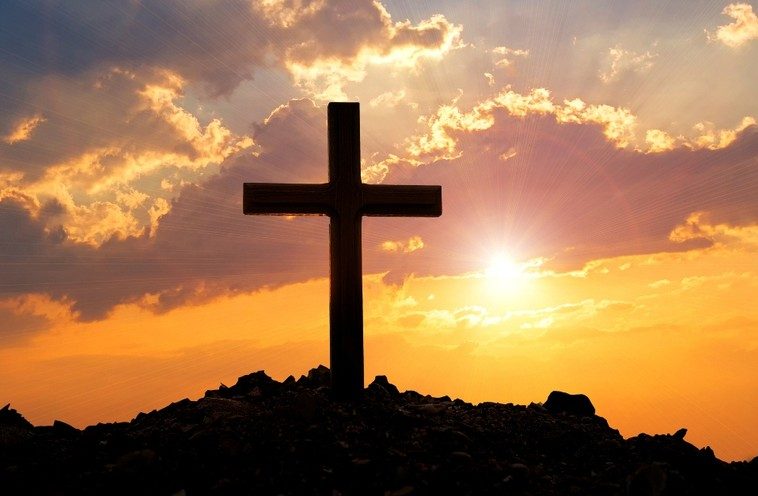Good Friday, observed by Christians around the world, stands as a solemn reminder of the crucifixion of Jesus Christ. It is a day marked by reflection, prayer, and deep contemplation. Beyond its religious significance, Good Friday holds universal themes of sacrifice, redemption, and the enduring resilience of the human spirit. In this article, the multifaceted layers of Good Friday, its exploration of its traditions, its reflection on humanity, and its enduring relevance in the modern world are discussed.
The Tradition of Good Friday
Good Friday, falling on the Friday before Easter Sunday, is an integral part of the Holy Week, which commemorates the final days of Jesus Christ on Earth. Its traditions vary across different Christian denominations and cultures, but the essence remains the same – to honor the crucifixion of Jesus and the ultimate sacrifice he made for humanity’s redemption.
In many Christian communities, Good Friday is marked by solemn church services, where the faithful gather to reflect on the Passion of Christ. The Stations of the Cross, a devotional practice depicting Jesus’ journey to the cross, is often reenacted or meditated upon. The atmosphere is one of reverence and solemnity, as believers contemplate the depth of Jesus’ suffering and the significance of his sacrifice.
Traditionally, Good Friday is also a day of fasting and abstinence in many Christian traditions. This act of self-denial is seen as a way to empathize with Jesus’ suffering and to purify the soul. Moreover, it serves as a reminder of the importance of humility and simplicity in the face of worldly temptations.
Another prominent tradition associated with Good Friday is the veneration of the cross. Many churches display a crucifix, which is solemnly unveiled and venerated by the congregation. This ritual symbolizes the central tenet of Christianity – the belief in the crucified and risen Christ as the source of salvation and hope.
Reflection on Humanity
Beyond its religious significance, Good Friday offers a profound opportunity for introspection and reflection on the human condition. The story of Jesus’ crucifixion speaks to universal themes of suffering, forgiveness, and redemption that resonate with people of all faiths and backgrounds.
At the heart of Good Friday is the concept of sacrificial love – the idea that one individual can willingly endure immense suffering for the sake of others. Jesus’ crucifixion serves as a powerful example of selflessness and compassion, challenging us to reflect on our own capacity for love and empathy towards others.
Moreover, Good Friday compels us to confront the reality of human sinfulness and the need for repentance and reconciliation. The betrayal, injustice, and cruelty inflicted upon Jesus highlight the darker aspects of human nature – greed, pride, and indifference. Yet, in the midst of this darkness, Good Friday offers a message of hope – that even in our brokenness, we can find redemption and forgiveness through the grace of God.
Good Friday also invites us to consider the broader implications of Jesus’ sacrifice for humanity. His death on the cross is seen as a pivotal moment in history, signaling the triumph of good over evil and the possibility of new life emerging from death. This message of hope and renewal resonates deeply with people facing adversity and suffering in their own lives, reminding them that no trial is insurmountable in the light of faith.
The Relevance of Good Friday Today
In an increasingly secular and pluralistic world, the significance of Good Friday may be lost on some. Yet, its message of love, sacrifice, and redemption remains as relevant today as it has ever been.
In a society plagued by division and strife, Good Friday reminds us of the power of forgiveness and reconciliation to heal wounds and bridge divides. It challenges us to extend grace and compassion to those who have wronged us, following in the footsteps of Jesus who prayed for his enemies even as he hung on the cross.
Moreover, Good Friday serves as a poignant reminder of the inherent dignity and worth of every human life. In a world marred by violence, injustice, and oppression, it calls us to stand in solidarity with the marginalized and the oppressed, just as Jesus stood in solidarity with the outcasts and the downtrodden.
Good Friday is more than just a religious observance – it is a timeless testament to the enduring power of love, sacrifice, and the human spirit. Through its traditions and reflections, it invites people of all faiths and backgrounds to contemplate the profound mysteries of life, death, and redemption. As we journey through the solemnity of Good Friday, may we be inspired to embody the virtues of compassion, forgiveness, and hope in our own lives, thereby continuing the legacy of love that Jesus Christ exemplified on the cross.


